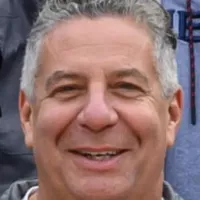Voice of America (VOA) is a U.S. government-funded international broadcasting network. As the largest and oldest U.S. international broadcaster, it creates digital, TV, and radio content in 48 languages. VOA's primary mission is to serve non-American audiences, particularly those in nations lacking free press or independent journalism. It aims to provide news and information to promote freedom and democracy worldwide.
1939: FCC Policy Set
In 1939, the U.S. Federal Communications Commission (FCC) set a policy intended to enforce the US State Department's Good Neighbor Policy, but some broadcasters felt it was an attempt to direct censorship.
1940: Shortwave Signals to Latin America
Around 1940, shortwave signals to Latin America were regarded as vital to counter Nazi propaganda. Edmund A. Chester supervised the development of CBS's extensive "La Cadena de las Américas" radio network to improve broadcasting to South America during the 1940s.
December 1941: US Government Provides War News
Even before the December 1941 Japanese attack on Pearl Harbor, the U.S. government's Office of the Coordinator of Information (COI) had already begun providing war news and commentary to the commercial American shortwave radio stations for use on a voluntary basis.
1941: Asian Transmissions Started
Asian transmissions for VOA started with one transmitter in California in 1941.
February 1, 1942: First Broadcast to Germany
On February 1, 1942, the first broadcast to Germany, called Stimmen aus Amerika ("Voices from America"), was transmitted. The term "The Voice of America" was coined to describe the shortwave network that began its transmissions that day.
1942: Viva America Show Launched
In 1942, The Columbia Broadcasting System launched the musical show Viva America (1942–49).
1942: VOA Founding
In 1942, Voice of America was founded and became part of the Office of War Information.
1942: Office of War Information Takes Over VOA
In the middle of 1942, the Office of War Information officially took over VOA's operations. VOA reached an agreement with the British Broadcasting Corporation to share medium-wave transmitters in Great Britain and expanded into Tunis in North Africa and Palermo and Bari, Italy, as the Allies captured these territories.
1944: Bethany Relay Station Operational
In 1944, the Bethany Relay Station became operational in Union Township, Butler County, Ohio.
1945: VOA Services Discontinued
About half of VOA's services, including the Arabic service, were discontinued in 1945. In late 1945, VOA was transferred to the US Department of State.
1945: Viva America Show Stations
By 1945, broadcasts of the Viva America show were carried by 114 stations on CBS's "La Cadena de las Américas" network in 20 Latin American nations.
1945: VOA Function of State Department
From 1945, VOA became a function of the State Department.
1947: VOA Starts Broadcasting to Soviet Citizens
In 1947, VOA started broadcasting to Soviet citizens in Russia under the pretext of countering Soviet propaganda.
1948: Charles W. Thayer Heads VOA
Charles W. Thayer headed VOA in 1948–49.
1948: Voice of America was forbidden to broadcast directly to American citizens
From 1948, pursuant to § 501 of the Smith–Mundt Act, Voice of America was forbidden to broadcast directly to American citizens to protect the American public from propaganda by its own government and to avoid any competition with private American companies.
April 24, 1949: Soviet Union Initiates Jamming of VOA Broadcasts
On April 24, 1949, the Soviet Union responded to VOA broadcasts by initiating electronic jamming.
1949: Foy Kohler Becomes Director of VOA
Foy Kohler became the director of VOA in 1949 and served until 1952, believing strongly in VOA's role in combating communism.
January 1, 1950: Arabic Service Resumes
On January 1, 1950, the Arabic service resumed with a half-hour program.
August 1952: Billy Brown's Program
From August 1952 through May 1953, Billy Brown, a high school senior in Westchester County, New York, had a Monday night program sharing everyday happenings in Yorktown Heights, New York.
1952: Voice of America Mobile Broadcasting Ship
Between 1952 and 1960, Voice of America used a converted U.S. Coast Guard cutter Courier as a first mobile broadcasting ship.
1952: Analysis of Letters to VOA
In 1952, an analysis was done of letters sent to VOA, finding that letter writing could be an indicator of successful persuasion. Broadcasts were found to have different effects in different countries, and age was a factor in program preferences.
March 1953: McCarthyist Policies
During 1953, VOA personnel were subjected to McCarthyist policies, where VOA was accused by Senator Joseph McCarthy, Roy Cohn, and Gerard David Schine of intentionally planning to build weak transmitting stations to sabotage VOA broadcasts. However, the charges were dropped after one month of court hearings in February and March 1953.
May 1953: Billy Brown's Program Ends
From August 1952 through May 1953, Billy Brown, a high school senior in Westchester County, New York, had a Monday night program sharing everyday happenings in Yorktown Heights, New York.
1953: VOA Placed Under USIA
In 1953, VOA was placed under the U.S. Information Agency (USIA).
1953: Analysis of Letters to VOA
In 1953, an analysis was done of letters sent to VOA, finding that letter writing could be an indicator of successful persuasion. Broadcasts were found to have different effects in different countries, and age was a factor in program preferences.
1954: VOA Headquarters Moved
Sometime around 1954, VOA's headquarters were moved from New York to Washington D.C.
1955: Voice of America Jazz Hour Broadcast
From 1955 until 2003, VOA broadcast American jazz on the Voice of America Jazz Hour, hosted by Willis Conover, which reached 30 million listeners at its peak.
1956: Hungarian Revolution and VOA Broadcasts
During the Hungarian Revolution of 1956, VOA's broadcasts were deemed controversial, as Hungarian refugees and revolutionaries thought that VOA insinuated the possible arrival of Western aid.
1956: Arabic Program Expansion During Suez Crisis
During the Suez Crisis of 1956, the Arabic program grew to 14.5 hours daily.
1956: Programs Aimed at South Africa
In 1956, a program aimed at South Africa broadcast two hours nightly, and special programs such as The Newport Jazz Festival were also transmitted.
1956: Polish People's Republic and Chinese-language VOA broadcasts jammed
In 1956, the Polish People's Republic stopped jamming VOA transmissions, while Chinese-language VOA broadcasts began to be jammed and continued through 1976.
1958: Arabic Program Hours Reduced
By 1958, the Arabic program was six hours a day.
1959: Loomis commissions statement of principles
In 1959, VOA Director Henry Loomis commissioned a formal statement of principles to protect the integrity of VOA programming and define the organization's mission.
1960: Voice of America Mobile Broadcasting Ship
Between 1952 and 1960, Voice of America used a converted U.S. Coast Guard cutter Courier as a first mobile broadcasting ship.
1960: Directive Issued by George V. Allen
In 1960, the formal statement of principles for VOA was issued by Director George V. Allen as a directive.
1962: Directive Endorsed by Edward R. Murrow
In 1962, the VOA directive was endorsed by USIA director Edward R. Murrow.
1963: Bethany Relay Station Upgrades
Around 1963, major transmitter upgrades were undertaken at the Bethany Relay Station, with shortwave and medium-wave transmitters being built, upgraded, or rebuilt.
1963: VOA covered Martin Luther King Jr.'s "I Have a Dream" speech
In 1963, VOA covered Martin Luther King Jr.'s "I Have a Dream" speech as one of the era's most important news events.
1969: VOA covered Neil Armstrong's first walk on the Moon
In 1969, VOA covered Neil Armstrong's first walk on the Moon, drawing an estimated audience of 615 to 750 million people.
1973: Soviet jamming of VOA ceased
In 1973, Soviet jamming of VOA ceased due to the détente policies in the Cold War.
1976: Chinese-language VOA broadcasts jammed
Chinese-language VOA broadcasts were jammed until 1976, beginning in 1956.
1976: VOA Firewall
In 1976, The Voice of America "Firewall" was put in place with the VOA Charter.
1976: VOA Charter Signed into Law
In 1976, U.S. President Gerald Ford signed into law the VOA charter, which mandates its reporting be "accurate, objective, and comprehensive".
1979: Soviet jamming of VOA restarted
In 1979, Soviet jamming of the VOA was restarted.
September 1980: VOA started broadcasting to Afghanistan
In September 1980, VOA began broadcasting to Afghanistan in Dari.
1982: VOA began broadcasting in Pashto and regular exchanges with Radio Peking.
In 1982, VOA began broadcasting to Afghanistan in Pashto, and it also began regular exchanges with Radio Peking.
1983: VOA's Polish broadcasts expanded
In 1983, during the implementation of Martial law in Poland, VOA's Polish broadcasts expanded to seven hours daily.
1985: VOA Europe was created
In 1985, VOA Europe was created as a special service in English, relayed via satellite to AM, FM, and cable affiliates throughout Europe, featuring music and news.
1989: Voice of America expanded its Mandarin and Cantonese programming
In 1989, Voice of America expanded its Mandarin and Cantonese programming to reach millions of Chinese people and inform them about the pro-democracy movement, including the demonstration in Tiananmen Square.
1990: Establishment of the Bureau of Broadcasting
Starting in 1990, the U.S. consolidated its international broadcasting efforts with the establishment of the Bureau of Broadcasting.
1993: Clinton administration advised cutting funding for Radio Free Europe/Radio Liberty
In 1993, the Clinton administration advised cutting funding for Radio Free Europe/Radio Liberty, believing post-Cold War information and influence was not needed in Europe.
1994: Law Passed Ensuring VOA Journalism Integrity
In 1994, Laws were passed as a way of ensuring the integrity of VOA's journalism.
1994: Clinton signed the International Broadcasting Act into law
In 1994, US President Bill Clinton signed the International Broadcasting Act into law, establishing the International Broadcasting Bureau as part of the USIA and creating the Broadcasting Board of Governors (BBG) with oversight authority.
1994: Voice of America offered continuously updated programs on the Internet
In 1994, Voice of America became the first broadcast-news organization to offer continuously updated programs on the Internet.
1994: Bethany Relay Station Shuts Down
In 1994, the Bethany Relay Station, operational since 1944, closed down. The site is now a recreational park with a Voice of America museum.
1994: U.S. International Broadcasting Act
The 1994 U.S. International Broadcasting Act prohibits editorial interference by government officials in VOA's reporting.
January 1997: VOA Europe closed down
In January 1997, VOA Europe was closed down without advance public notice as a cost-cutting measure.
June 1998: Eritrean–Ethiopian War exacerbated ethnic conflicts within the VOA
In June 1998, the Eritrean–Ethiopian War exacerbated ethnic conflicts within the VOA.
November 20, 1998: Annette Sheckler was fired for 'a lack of professional journalistic ethics'
On November 20, 1998, Annette Sheckler, was fired, officially for "a lack of professional journalistic ethics"; she describes the reason for her firing as "telling the truth".
December 1998: Annette Sheckler became head of the VOA Horn of Africa Service
In December 1998, Annette Sheckler became head of the VOA Horn of Africa Service.
1998: Foreign Affairs Reform and Restructuring Act signed into law
In 1998, the Foreign Affairs Reform and Restructuring Act was signed into law, mandating that the BBG become an independent federal agency as of October 1, 1999, and abolishing the USIA.
July 4, 1999: VOA Express revamped into VOA Music Mix
On July 4, 1999, VOA Express was revamped into VOA Music Mix.
October 1, 1999: BBG became an independent federal agency
On October 1, 1999, the Broadcasting Board of Governors (BBG) became an independent federal agency, as mandated by the Foreign Affairs Reform and Restructuring Act.
1999: VOA Under BBG
In 1999, when the USIA was abolished, VOA was placed under the BBG, an autonomous U.S. government agency.
2000: VOA's impact on Kurds and Kurdistan
In 2000, Kurdish Life claimed the VOA exacerbated the conflict between the Talabani and the Barzani, covered up wrongful imprisonments, wrongful arrests, and the building of extremist mosques, claiming the VOA was turning Kurds into fanatics and forming a new generation of terrorists.
2002: Arabic Service abolished and replaced by Radio Sawa
In 2002, the Arabic Service was abolished and replaced by a new radio service called the Middle East Radio Network, also known as Radio Sawa, with a budget of $22 million.
2003: Voice of America Jazz Hour Broadcast
From 1955 until 2003, VOA broadcast American jazz on the Voice of America Jazz Hour, hosted by Willis Conover, which reached 30 million listeners at its peak.
February 2004: Radio Sawa expanded to television with Alhurra
In February 2004, Radio Sawa expanded to television with the launch of Alhurra, and later to various social media platforms and websites.
May 2004: Worldnet became part of VOA as VOA TV
In May 2004, the US government's international English language TV service Worldnet became part of VOA as "VOA TV".
April 2, 2007: Abdul Malik Rigi Interview
On April 2, 2007, Abdul Malik Rigi, leader of Jundullah, appeared on Voice of America's Persian-language service. This interview was condemned by the Iranian government.
2008: Radio programs in several languages ended
In 2008, radio programs in Russian, Hindi, Ukrainian, Serbian, Macedonian, and Bosnian ended as part of an effort to allocate resources to broadcasts in the Muslim world.
September 2010: VOA began radio broadcasts in Sudan
In September 2010, VOA began radio broadcasts in Sudan as U.S. interests in South Sudan grew and there was a desire to provide people with free information.
2010: Execution of Abdul Malik Rigi
In 2010, Abdul Malik Rigi, who had appeared on VOA in 2007, was executed in Evin Prison in Tehran after being captured by Iranian security services.
February 2013: China Central Television accuses VOA of instigating self-immolations
In February 2013, a documentary by China Central Television interviewed a Tibetan who claimed that Voice of America's broadcasts of commemorations motivated his suicide attempt. VOA denied instigating self-immolations and demanded a retraction.
March 2013: VOA Radiogram started
VOA Radiogram started in March 2013. It was an experimental Voice of America program that transmitted digital text and images via shortwave radiograms.
2013: VOA ended foreign-language transmissions on shortwave and medium wave
In 2013, budget cuts led VOA to end foreign-language transmissions on shortwave and medium wave to Albania, Georgia, Iran, and Latin America, as well as English-language broadcasts to the Middle East and Afghanistan.
2013: Smith-Mundt Act Amended
In 2013, the Smith-Mundt Act was amended via the Smith-Mundt Modernization Act provision of the National Defense Authorization Act for 2013. The amendment was intended to adapt the law to the Internet and to allow American citizens access to VOA content.
November 1, 2014: VOA Music Mix rebranded as VOA1
On November 1, 2014, VOA Music Mix was rebranded as VOA1 and offered to stations.
2014: VOA Website Broadcasts
As of 2014, the Voice of America website had five English-language broadcasts and versions in 48 foreign languages.
2014: VOA cut English-language transmissions and shortwave transmissions in multiple languages
In 2014, VOA cut most of its English-language transmissions to Asia, as well as shortwave transmissions in Azerbaijani, Bengali, Khmer, Kurdish, Lao, Uzbek, and Greek.
2015: Listeners' views on DEEWA Radio
In 2015, VOA's DEEWA Radio airing in Pakistan had mixed reception, with some listeners suspicious of its American agenda, while others felt empowered by the program giving a voice to the voiceless.
2015: Matthew Schuck wrote for The Daily Surge until 2015
Matthew Schuck, who was a staff writer for the right-wing website The Daily Surge until 2015, was sent by Trump as one of his political aides to the agency to aid its CEO during the transition to the Trump administration.
January 2016: Detention and Deportation of Jeff Shell
In January 2016, Russian authorities detained and deported Jeff Shell, the Chairman of the Broadcasting Board of Governors that oversees the Voice of America, upon his arrival in Moscow, without providing an explanation.
2016: VOA Audience Size
In 2016, VOA had a weekly worldwide audience of 237 million.
2016: Law Passed Ensuring VOA Journalism Integrity
In 2016, laws were passed as a way of ensuring the integrity of VOA's journalism.
January 2017: Tweets by Voice of America supported White House statements
After the January 2017 inauguration of US President Donald Trump, tweets by Voice of America seemed to support widely criticized statements by White House press secretary Sean Spicer, raising concerns over possible attempts by Trump to politicize VOA.
February 7, 2017: Current Time 24/7 Broadcasting
On February 7, 2017, Current Time began broadcasting around-the-clock.
April 19, 2017: VOA Mandarin Service interview with Guo Wengui cut short
On April 19, 2017, the VOA Mandarin Service interviewed Chinese real estate tycoon Guo Wengui. The interview was abruptly cut off after one hour and 17 minutes, following Guo's allegations of corruption among members of the Politburo Standing Committee of China.
June 2017: VOA Radiogram ended
In June 2017, VOA Radiogram ended with its final edition transmitted during the weekend of June 17–18, 2017, a week before the retirement of the program producer from VOA.
June 25, 2017: Shortwave Radiogram began transmission
On June 25, 2017, Shortwave Radiogram began transmission from the WRMI transmitting site in Okeechobee, Florida, as a follow-on show to VOA Radiogram.
December 2017: VOA Deemed a "Foreign Agent" in Russia
In December 2017, under a new directive from Russia's Kremlin, Voice of America was deemed a "foreign agent" under the Russian foreign agent law.
2018: Pakistani Authorities Block VOA Website
In 2018, Pakistani authorities blocked the website of VOA's Pashto and Urdu language radio service.
April 10, 2020: White House published an article critical of VOA coverage
On April 10, 2020, the White House published an article critical of VOA's coverage of the coronavirus pandemic.
June 3, 2020: Michael Pack confirmed as head of US Agency for Global Media
On June 3, 2020, Michael Pack, a conservative documentaries filmmaker and close ally of Steve Bannon, was confirmed by the US Senate to serve as head of the US Agency for Global Media, which oversees VOA.
July 20, 2020: District of Columbia attorney general filed suit to reverse Pack's replacement of OTF board
On July 20, 2020, the District of Columbia attorney general Karl A. Racine filed a suit under the District's Nonprofit Corporations Act. The suit aimed to reverse Michael Pack's replacement of the Open Technology Fund (OTF) board.
August 12, 2020: USAGM chief financial officer and general counsel removed from their positions
On August 12, 2020, USAGM chief financial officer Grant Turner and general counsel David Kligerman were removed from their positions and stripped of their security clearances, reportedly for their opposition to what Turner called "gross mismanagement".
November 4, 2020: Start of review period of meetings of Horn of Africa service
From November 4, 2020 to April 30, 2021, during the Tigray War, most (81%) of the meetings of the Horn of Africa service did not have approvals by Tizita Belachew, head of the service, or by Solomon Abate, of stories on the war that included Tigrayan points of view.
November 2020: US District Court Judge found Pack violated the First Amendment rights of VOA journalists
In November 2020, US District Court Judge Beryl Howell found that Michael Pack violated the First Amendment rights of Voice of America (VOA) journalists.
December 2020: Pack refuses to cooperate with Biden's transition team and replaces VOA Acting Director
In December 2020, The Washington Post reported that Michael Pack refused to cooperate with President-elect Biden's transition team. Pack persuaded VOA Acting Director Biberaj to step down and replaced him with Robert Reilly, a former VOA director.
January 11, 2021: VOA interim director Reilly ordered veteran reporter Patsy Widakuswara off the White House beat
On January 11, 2021, VOA interim director Reilly ordered veteran reporter Patsy Widakuswara off the White House beat after she questioned Secretary of State Mike Pompeo. Subsequently, Widakuswara was reinstated after President Biden requested the resignation of Michael Pack.
January 2021: Termination of Setareh Derakhshesh Sieg
In January 2021, Setareh Derakhshesh Sieg, the director of Voice of America's Persian News Network (PNN), was terminated for falsifying her education credentials and corruption-related offenses.
April 30, 2021: End of Review period of meetings of Horn of Africa service
From November 4, 2020 to April 30, 2021, during the Tigray War, most (81%) of the meetings of the Horn of Africa service did not have approvals by Tizita Belachew, head of the service, or by Solomon Abate, of stories on the war that included Tigrayan points of view.
May 2021: Former employees accused VOA's Amharic service of bias
In May 2021, several former employees accused VOA's Amharic service, under Negussie Mengesha's leadership, of being biased in favor of the government of Abiy Ahmed, including failing to report on atrocities during the Tigray War.
June 2021: Report on bias in VOA's Horn of Africa service during Tigray War
In June 2021, Mail & Guardian reported on an investigation indicating bias in the VOA Horn of Africa service during the Tigray War. It was reported that instructions emailed to staff stated that the terms "civil war" and "war" were forbidden in reporting on the Tigray War.
June 2021: Roskomnadzor Complains About VOA
In June 2021, the Russian news agency TASS reported that Russia's state communications watchdog Roskomnadzor complained that Voice of America refused to observe Russian law because it had not established a Russian legal entity.
2021: Voice of America launched 52 Documentary
In 2021, Voice of America launched 52 Documentary, a series that publishes weekly films about human experiences on the streaming app, VOA+, and YouTube.
June 30, 2022: Access to VOA's website blocked in Turkey
On June 30, 2022, the Turkish media watchdog, Radio and Television Supreme Council (RTÜK), blocked access to VOA's website amerikaninsesi.com in Turkey because VOA had not applied for the necessary licence.
2022: VOA Audience Size
As of 2022, VOA had a weekly worldwide audience of approximately 326 million and employed 961 staff with an annual budget of $267.5 million.
May 2023: Russia Bans Yolanda Lopez
In May 2023, Russia banned then-acting VOA chief Yolanda Lopez from entering the country.
August 2023: VOA Turkish Website Blocked
In August 2023, VOA Turkish subsequently broadcast over a different VOA website domain name, voaturkce.com, which was blocked as well.
October 7, 2023: Hamas Attack and VOA Guidance
On October 7, 2023, following the Hamas attack on Israel, VOA staff received an email with guidance on referring to the actions and members of Hamas. This guidance led to criticism from Republican members of Congress, prompting clarification from USAGM and a reduction in USAGM's budget.
June 12, 2024: House Committee Finds Evidence of Corruption
On June 12, 2024, the House Foreign Affairs Committee concluded there was "credible evidence of corruption" regarding Setareh Derakhshesh Sieg, the former director of Voice of America's Persian News Network (PNN).
July 2024: Michael Abramowitz Assumes Directorship
In July 2024, Michael Abramowitz became the director of VOA. He was previously the president of Freedom House and a reporter/editor for The Washington Post for nearly 25 years.
December 2024: Donald Trump announced Kari Lake would be his choice for VOA Director
In December 2024, Donald Trump, as president-elect, announced Kari Lake would be his choice for VOA Director. She had previously lost elections for Arizona governor and senator, and advanced false claims around her and Trump's election losses.
December 2024: Trump Announces Kari Lake as VOA Director
In December 2024, president-elect Trump announced he would name former news anchor Kari Lake to be the director of VOA. Under the International Broadcasting Act only the International Broadcasting Advisory Board has the authority to approve the appointment or removal of the VOA Director.
2024: Equivalent of $1.2 billion spent on jamming VOA in 1956
In 2024, the equivalent of $1.2 billion was spent on jamming VOA in 1956 by the Russians.
February 2025: Elon Musk called for VoA and Radio Free Europe to shut down
In February 2025, Elon Musk, the functional leader of DOGE, called for VoA and Radio Free Europe to shut down, coming after previously made suggestions by other government officials to shutter the agency.
March 14, 2025: Funding Cut to USAGM
Following an executive order cutting funding to the USAGM on March 14, 2025, almost all of VOA's 1,300 journalists, producers and assistants were placed on administrative leave.
Mentioned in this timeline

Elon Musk is a businessman primarily known for his involvement...
Ukraine is an Eastern European country the second largest on...

Donald John Trump is an American politician media personality and...
CBS Broadcasting Inc or CBS is a prominent American commercial...
California is the most populous US state located on the...
Sudan officially the Republic of the Sudan is a country...
Trending

2 hours ago Mookie Betts Decides on Dodgers' White House Visit Amidst Controversy with Donald Trump.

2 hours ago Tanner Scott's Velocity, Dodgers' World Series Ambitions, and Kirk Gibson's First Pitch

2 hours ago Venus Williams Reveals Her Admiration for an ATP Legend, Igniting Tennis World Passion.

2 hours ago Tom Cruise's advice helps Hayley Atwell with social anxiety: 'Keep looking at it'.

2 hours ago Michael Keaton's Batman: Catchphrase, Killer Moments, and Reboot Rescue Attempts Explored.

2 hours ago Casey Mize Shines in Debut as Tigers Beat Mariners 4-1.
Popular

Bruce Pearl is an American college basketball coach currently head...

LeBron James nicknamed King James is a highly decorated American...

Jasmine Crockett is an American lawyer and politician currently serving...

Cristiano Ronaldo nicknamed CR is a Portuguese professional footballer widely...

Michael Jordan also known as MJ is a celebrated American...

Pamela Jo Bondi is an American attorney lobbyist and politician...